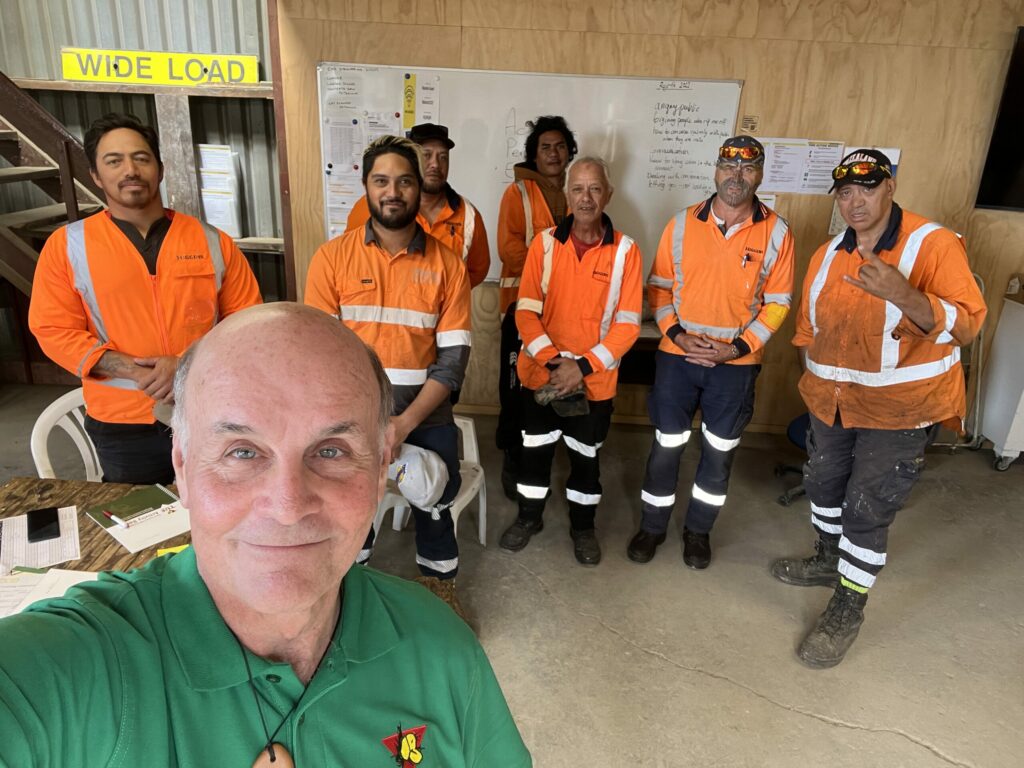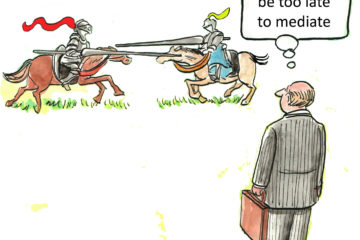Three practical steps to manage your rage and frustration when the whole town has their wisdom teeth pulled at once.
This graphic image of a whole town with sore teeth comes from newspaper columnist Verity Johnson and captures the mood that many are experiencing these days. People everywhere are stressed to some extent with nearly three years of Covid disruptions, extreme weather events and cost of living challenges. Added to that the usual stress-inducing causes such as running out of toilet paper, dirty dishes left on the bench, misplacing your keys or the cat puking on the carpet still happen.
You can see a symptom of this stress in the abuse road maintenance crews get from motorists delayed by roadworks. Their frustration is very real and strongly felt. In moments of relative anonymity, motorists vent their feelings on the road crews who are in front of them.
Real life stories
I know this because of the recent TUF workshops with road crews and infrastructure workers. We heard stories about the verbal abuse hurled at them by frustrated drive-by motorists, and threats they get when members of the public confront them. The crews have been learning de-escalation skills, and how to stay positive about their job and keep their work focus; and their managers want them to learn how to manage these difficult (but common) moments, for their physical and emotional safety. As part of this they learn how to manage their own emotions when abused and to stay safe in volatile situations.

This is about you
This post is about you. It’s the flip side of what I teach road workers and anyone else in who must deal with angry and aggressive members of the public. This is about you when you are that frustrated motorist or disgruntled customer.
I’m writing it to help all those frontline men and women I’ve met in the workshops, so they won’t have to deal with more angry people then they need to.
Angry motorists are normally nice people just like you. Every so often you, like them, might be overcome with frustration (it may be the last straw on the camel’s back) and suddenly you want to explode and blame somebody else for the uncomfortable way you feel. Your emotional ‘toothache’ won’t go away, and someone is to blame. What can you do?
Grab a BAG
Three things to stop you exploding. Grab a BAG:
- Breathe.
- Acknowledge your own emotions.
- Ground yourself.
Let’s unpack this BAG:
B = Breathe deeply and slowly
What is happening?
In the moment of high emotion, your brain reacts as if you are under threat. The emotional part of the brain (amygdala) hijacks the rational brain. The fight/flight response kicks in; adrenaline races throughout your body, and everything speeds up. Your brain reacts as if you are in a life-threatening emergency.
But this is not an emergency. It is you feeling stressed and overwhelmed.
What to do?
Notice your breath and slow it down. Slow, deep breathing changes the way your whole body responds to the distress. You don’t need to shout at someone. In fact, if you do shout it probably won’t be helpful for you or them.
There are many breathing exercises that can help with this. US Navy Seals teach a breathing technique called box breathing. They use this when they face stressful situations and need to stay calm to survive. The technique is to:
- breathe in through your nose for a count of four.
- hold for a count of four.
- breathe out through your mouth for a count of four; and then
- hold for a count of four.

Repeat this for as long as needed. If you can’t remember the counting part of box breathing, the essence of most breathing techniques is to breathe out more slowly than you breathe in.
A = Acknowledge to yourself what you are feeling
What is happening?
When you are stressed and have strong feelings/feel upset, there’s a temptation to blame someone else for your discomfort. This is not helpful. Your feelings are yours alone.
Let’s say you are frustrated or annoyed by a road worker who you think intentionally placed road cones in your way. It is your personal reaction to be frustrated. Another person in the same situation may be quite content to stop and wait until the road is clear.

Your feelings are neither right nor wrong, good nor bad. Rather, your feelings tell you something about yourself and your values. Your frustration may tell you how important it is to get to your destination. Notice what your feelings tell you. At the same time, you don’t have to act on your feelings. You don’t have to shout abuse at those road workers as if they are responsible for how you are feeling. Abusing someone is an action that can be judged as wrong, but your feelings are neither right nor wrong.
What to do?
Neuroscientists report that acknowledging your feelings without judging yourself is the most powerful action you can take to calm yourself down. You don’t need to be afraid of your feelings, rather get curious about them. Can you accurately name what the feeling is when it happens? When you name your feelings, you are ‘owning’ them; they are yours.
G = Ground yourself
What is happening?
Strong emotions can cause you to lose touch with what is happening around you. Your emotional brain is overactive, your normal senses get distorted, and you can get isolated from reality. When this happens, you need to take steps to reconnect with the world around you, to get grounded.
What to do?
There are very practical actions you can take. Feel your feet on the ground, feel the air around you. Notice the landscape, the room, get real and concrete. What do you see, hear, smell, touch? Take your time and notice your environment.

As you regain your connection with the world around you be grateful for what you observe. Make a conscious effort to be grateful for what is there, even while you experience uncomfortable feelings. The very act of looking for something to be grateful for changes the way your brain is working. You will be less focused on your own problems and more focused on the good things around you.
Contact us if you want to find out more about the Online or face-to-face training we offer.
